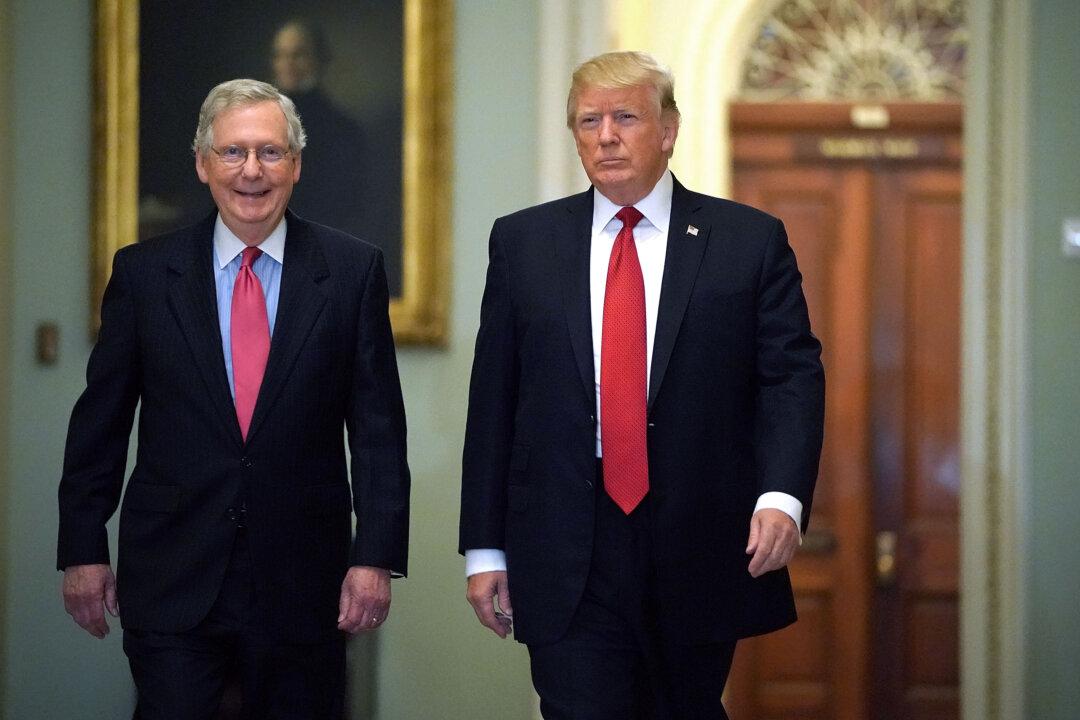The Senate’s vote on a budget resolution on Oct. 19 was a significant step toward advancing tax reform. Republicans have now set an ambitious schedule to get a bill to the president’s desk by the end of the year.
“We are doing things differently with this bill than we did on the health care bill that ended up in disaster,” said Republican Sen. David Perdue (R-Ga.), during a panel discussion at the Heritage Foundation on Oct. 24.





